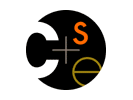
|

CSE 473: Artificial Intelligence |
|
 CSE Home CSE Home |
 About Us About Us |
 Search Search |
 Contact Info Contact Info |
|
Welcome to CSE 473 (Autumn 2006)Rajesh Rao (Instructor) with Ravi Kiran (TA) and Abhay Kumar Jha (TA) MWF 1:30-2:20 EE1 037
Announcements:
In this course, we will explore basic concepts and techniques in the field of Artificial Intelligence and come face to face with the challenges of building an "intelligent system". We will focus on methods for search, knowledge representation, planning, probabilistic reasoning, machine learning, and robotics. (Catalog Description. Prerequisite: CSE 326. Credits: 3).
CSE 473 Mailing List:Be sure to join the class mailing list and browse the email archive. To join, visit the signup page. You should get a response quickly that you have been added.
StaffInstructor: Rajesh Rao (rao at cs.washington.edu)Allen Center 566 Office Hours: By appointment (send email)
TA: Ravi Kiran (kiran at cs.washington.edu)
TA: Abhay Kumar Jha (abhaykj at cs.washington.edu)
TextbookThe (required) textbook is Russell & Norvig's "Artificial Intelligence: A Modern Approach," (Prentice Hall) 2nd edition, 2003.GradingYour final grade will be assigned as follows:
Late PolicyUnless otherwise indicated, assignments and projects are due by the start of lecture on their due date. If you hand in an assignment more than one hour late, we will take off 20% for each day (or portion thereof) that it is late. So, if an assignment is due on October 9, it must be in the TA or lecturer's hands by start of class on that day, with a one hour grace period after that.Cheating Vs. Collaborating GuidelinesCollaboration is a very good thing. On the other hand, cheating is considered a very serious offense. Please don't do it! Concern about cheating creates an unpleasant environment for everyone. If you cheat, you risk losing your position as a student in the department and the college. The department's policy on cheating is to report any cases to the college cheating committee. What follows afterwards is not fun. So how do you draw the line between collaboration and cheating? Here's a reasonable set of ground rules. Failure to understand and follow these rules will constitute cheating, and will be dealt with as per University guidelines.
|
|
Department of Computer Science & Engineering University of Washington Box 352350 Seattle, WA 98195-2350 (206) 543-1695 voice, (206) 543-2969 FAX [comments to Rajesh Rao] | |